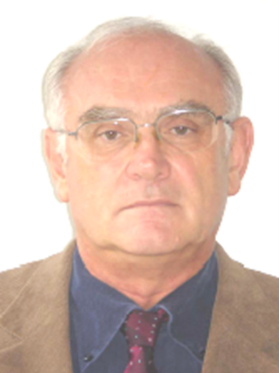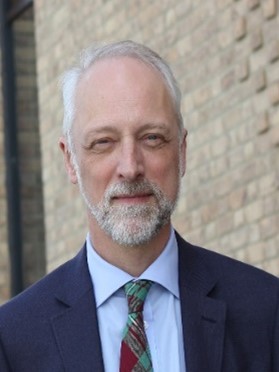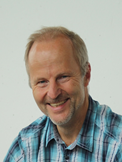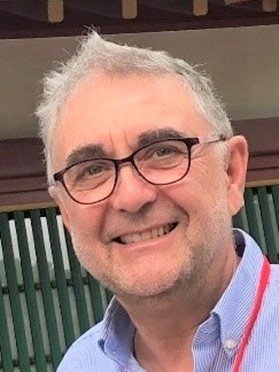Plenary Speakers - DIMAT 2021
 |
Prof. Dezső Beke was head of the department of Solid State Physics (1990-2008), Vice Rector for Research, 2000-2010 Director of PhD School on Physics, University of Debrecen. 2000-2015 Leader of “Solid State Physics and Materials Science” in the PhD school. From 2015 professor emeritus. He is a Doctor honoris causa of National University of Uzgorod, Ukraine, 2002, Doctor honoris causa of University of Miskolc, Hungary 2017. He was the editor of five conference proceedings (published by the Mat. Sci. Forum or defect and Diffusion Forum.); author of 18 chapters in books (three of them in Landolt-Börnstein, New Series, Vol. III/33a-b), volume editor of Landolt-Börnstein, New Series, Vol. III/33a and Vol. III/33b as well as editor of „Nanodiffusion” and „Materials Science of Nanostructures” books. He is a co-author of over 370 papers in print, H-index=31.
He was the organiser of nine international conferences, together with Prof. F.J. Kedves he organized the DIMETA82 conference which was subsequently followed by a series of conferences on diffusion in Materials (DIMAT).
Prof Beke’s research interests include solid state physics and materials science. He has worked extensively on diffusion in solids; grain-boundary segregation and diffusion; diffusion and stresses, solid state reactions in nano-materials. His current research programme is on shape memory alloys and magnetic and acoustic noises.
|

|
Prof. Eugen Rabkin is a holder of the Trudy and Normal Louis Chair in Engineering at the Technion – Israel Institute of Technology. In the years 2014-2017 he served as a Dean of the Department of Materials Science and Engineering. He obtained a Ph.D. degree from the Institute of Solid State Physics of the Russian Academy of Sciences in 1991. From 1992 till 1997 he was a post-doctoral fellow and research assistant at the Max Planck Institute of Metal Research and the University of Stuttgart in Germany. Since 1997 Prof. Rabkin is a faculty member in the Department of Materials Science and Engineering at the Technion. Prof. Rabkin has held guest appointments at the University of Aix-Marseille (2000), Tohoku University (2003), Princeton University (2005-2006), and Karlsruhe Institute of Technology (2014). His research is focused on diffusion and phase transformations in materials, interfaces in materials, mechanical properties of materials at the nanoscale, and hydrogen interaction with metals. He has published more than 250 articles in international peer-review journals.
|
 |
Prof. Jörg Kärger was educated at Leipzig University, whose member he remained until today. In 1994, he became Professor of Interface Physics. Since 2000 he is member of the Saxon Academy of Sciences and Humanities. His research activities, which continued unabated since his retirement in 2009, are devoted to diffusion in general and the development of new experimental techniques and concepts to study diffusion in nanoporous materials.
He is the founding editor of the On-line journal/conference series Diffusion Fundamentals, jointly with P. Heitjans. His textbooks Diffusion in Zeolites (Wiley, 1992, with D. M. Ruthven) and Diffusion in Nanoporous Materials (Wiley-VCH, 2012, with D. M. Ruthven and D. N. Theodorou) are standard references in the field. His book on “Diffusive Spreading in Nature, Technology and Society”, jointly edited with A. Bunde, J. Caro and G. Vogl, won the Literature Award 2019 of the Funds of Chemical Industry. Since 2019 he chairs the IUPAC task group “Diffusion in Nanoporous Solids”.
|
 |
Prof. Lindsay Greer was (2006‒2013) Head of the Department of Materials Science & Metallurgy, and (2016–2019) Head of the School of Physical Sciences (i.e. Dean for more than 300 faculty members across the mathematical and physical sciences) at Cambridge. He received his MA and PhD degrees from Cambridge, and holds an Honorary Doctorate from AGH University of Science & Technology, Cracow, Poland and the University of Sofia ‘St Kliment Ohridski’, Bulgaria. He was a NATO Research Fellow and Assistant Professor of Applied Physics at Harvard University, and has held visiting positions at the CEA and INP Grenoble, Washington University (St Louis), and the Universities of Vienna and Turin. He is a Foreign PI of the Advanced Institute for Materials Research, Tohoku University (Sendai, Japan).
Prof. Greer’s research interests include chalcogenide thin films for phase-change data storage, and the fundamentals of crystal nucleation and growth in liquids and glasses. He has worked extensively on grain refinement in alloy solidification, and currently has a research programme (supported by an ERC Advanced Grant) on metallic glasses. He is a co-author of two books, and has 13 edited proceedings, 16 book chapters, and over 450 papers in print. His H-index = 65 (Web of Science, April 2021).
|
 |
Dr. Sergiy Divinski is leading the radiotracer laboratory at the Institute of Materials Physics, University of Münster, Germany. He received his graduate degree in solid state physics from Moscow Institute of Physics and Technology (PhysTech, Russia) in 1987 and his PhD degree in solid state physics from the Institute of Metals Physics (Kiev, Ukraine) in 1990 under supervision of Prof. L.N. Larikov. In 1998 he joined the Institute of Materials Physics, University of Münster, Germany, first as a Alexander-von-Humboldt Fellow and then as a research fellow. The research activities are concentrated on kinetic and thermodynamic properties of interfaces in solids, including intergranular and interphase boundaries, diffusion phenomena in intermetallic compounds including multi-principal element alloys, effects of ordering on diffusion kinetic and diffusion mechanisms, interfaces in severely deformed materials.
He teaches graduate and postgraduate courses on Diffusion in Solids, Numerical methods in Material Science and different aspects of Materials Science. He has co-authored more than refereed 200 articles in various international journals, several book chapters in the field of Diffusion in Solids and a textbook titled Thermodynamics, Diffusion and the Kirkendall effect in Solids. Presently, he serves as Editor-in-Chief of Defect Diffusion Forum.
|
 |
Prof. Manfred Martin holds a PhD in Physics of the University of Hannover, Germany. After a postdoctoral stay at the University of Oxford, UK he was appointed as Professor of Physical Chemistry at the Technical University Darmstadt, Germany. In 2000 he moved to RWTH Aachen University, Germany where he holds the chair of Physical Chemistry. At Seoul National University, Korea he was World Class University Professor and is now Adjunct Professor. He has more than 30 years of experience in education and research of physical chemistry of solids as well as in service at department, faculty and university level. His current research focusses on materials for energy conversion, resistive switching, solid-state reactions, secondary ion mass spectrometry, and computer simulations as well. Professor Manfred Martin has published more than 220 scientific papers in international, refereed journals.
He is organizer of a series of international conferences and symposia and is invited for plenary, keynote, and invited lectures at international conferences and symposia on a regular basis. He received the Carl-Wagner Award and has been elected as member of the Royal Society of Chemistry. He has supervised more than 50 PhD students and more than 20 postdoctoral fellows. Professor Manfred Martin has won and managed a large number of research programs and grants, and he is serving in editorial boards and expert panels of Germany and overseas as well.
|
 |
Prof. Dr. Dr. h.c. Guido Schmitz, Institute of Materials Science, Univ. of Stuttgart, Germany
|
